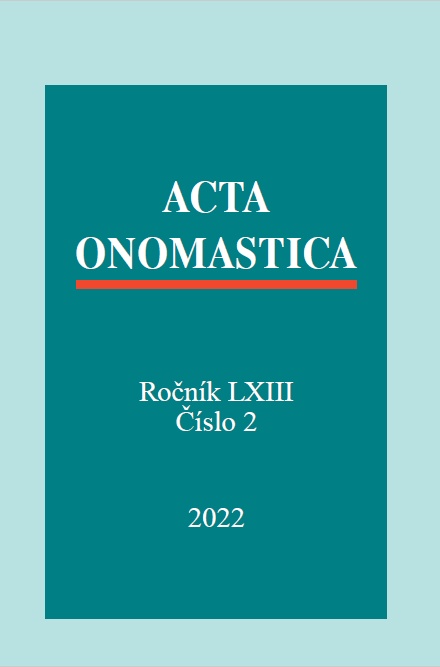K termínu „lidová etymologie“ v české onomastice
The term “folk etymology” in Czech onomastics
Author(s): Žaneta DvořákováSubject(s): Sociolinguistics
Published by: AV ČR - Akademie věd České republiky - Ústav pro jazyk český
Keywords: onomastics; proper names; terminology; folk etymology; false etymology
Summary/Abstract: The term folk etymology is traditionally used to denote an erroneous, usually arbitrary connection of an etymologically opaque word to a word which is similar in the form or meaning but it is of different origin. Our approach is wider, we consider folk ety-mology as a part of folk linguistics. Folk (or also learned) etymology is one of the oldest methods of interpreting proper names and we can meet this phenomenon as early as in medieval chronicles. Folk interpretations often grow into size of etymological tales. They represent the period of the so-called pre-scientific etymology. However, folk etymology has not been replaced by scientific etymology, it is still alive and part of language users’ awareness. The term “folk etymology” was introduced by E. Förstemann in his paper Über deutsche Volksetymologie / About German Folk Etymology (1852) where he mentioned a whole range of examples for proper names. The term folk etymology coined by Förstemann was, despite some criticism, adopted into other languages including Czech. Three years later and independently of Förstemann, H. Wedgwood published a paper on what he called “false etymologies”. Similar terms actually appear in other lan¬guages as well but they are considered problematic as they imply something improper. Folk etymology is sometimes treated as a non-scientific deformation of a language reality, as a misleading, deceptive preconception, which the educated scientists shall make sure to remove. F. de Saussure even supported the idea of folk etymology being something “pathological”. However, this opinion of his was frequently criticised. Nowadays, we do not perceive folk etymology as something wrong which is to be corrected. In our conception, the folk etymology is understood as a natural tendency of language users to explain foreign and opaque words as well as proper names, and to interpret, search and clarify the meaning connections even if these are not present.
Journal: Acta Onomastica
- Issue Year: 63/2022
- Issue No: 2
- Page Range: 367-378
- Page Count: 12
- Language: Czech

